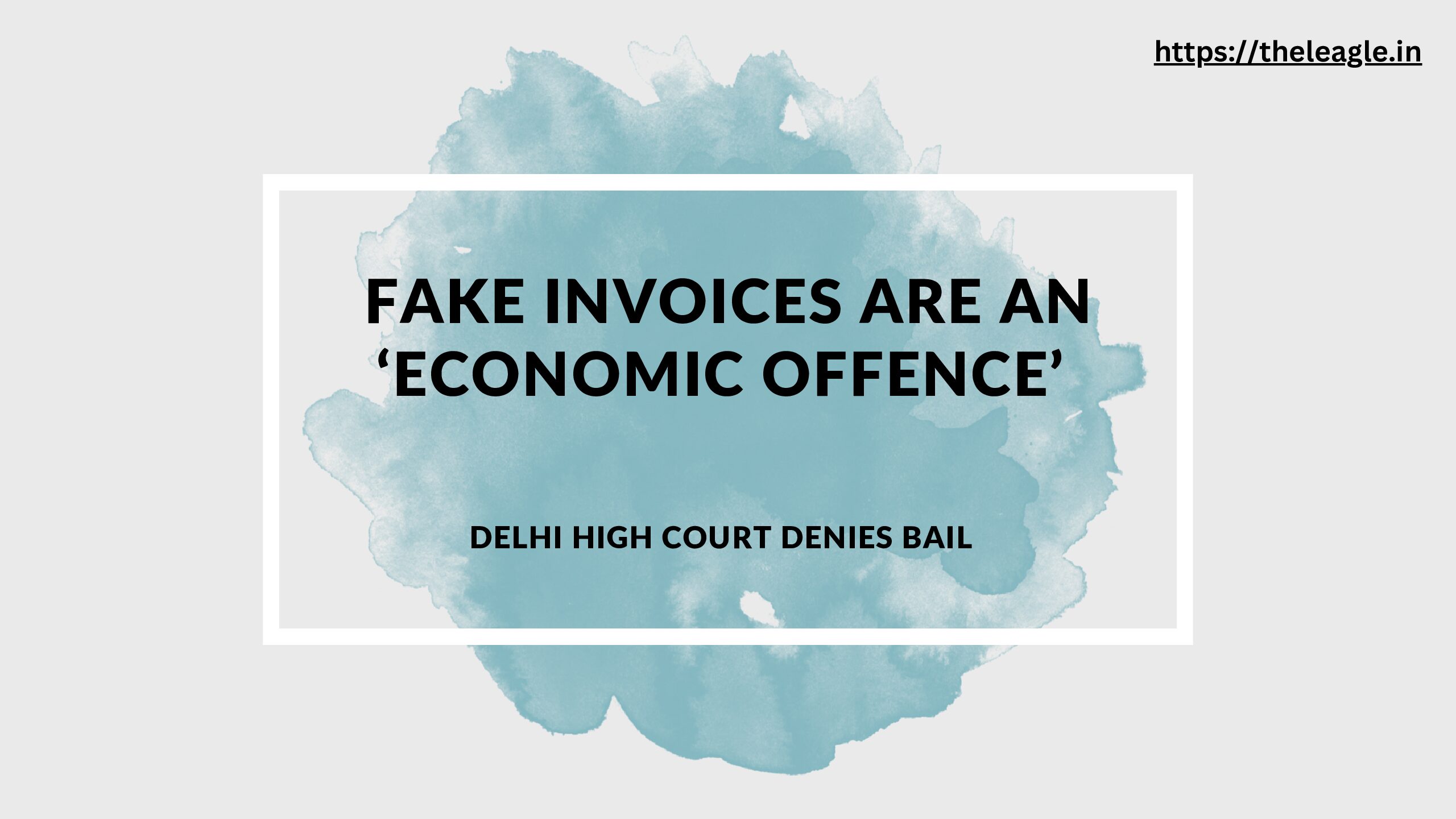Introduction
In a recent judgment[1], a Single Judge Bench of the Delhi High Court denied bail to the Chartered Accountant (‘CA’) of the complainant. The latter had filed FIR and alleged that he had appointed the CA for books of account of his business. The CA had persuaded the complainant to purchase goods and materials from various firms which the CA claimed were owned by persons known to him. The complainant started making purchases from the said firms and the CA generated various bills/e-way bills to that effect; but later the complainant got to know that firms recommended by the CA were bogus and non-existent.
The complainant alleged in the FIR that he was duped of money by the CA and that by creating false/fake firms, GST was deposited in accounts of said firms for purchases made by him, but the GST was not deposited to the State. The complainant supported his allegations by relying on bank transfers, pen drives and telephonic conversations among other evidence.
Bail Refused
The Delhi High Court noted that the CA had withdrawn the previous application for anticipatory bail to file fresh application before the trial court and had instead filed a surrender cum bail application before the Sessions Court. Thereafter, the present application was filed before the High Court where the CA on payment of Rs 75 lakhs sought interim protection on the pretext that mediation proceedings were ongoing. The first adverse finding of the High Court against the CA was that he had abused the process of court. The intent of the CA, as per the High Court was to secure interim protection on payment of Rs 75 lakhs to the complainant. But the High Court observed that the protection was not granted to the CA on merits but on possibility of settlement and once the mediation proceedings ended as ‘not settled’, the application for bail had to be considered on merits.
The Delhi High Court refused to grant bail to the CA inter alia on the ground that prima facie case was made against the CA – indicating a serious offence with severe punishment – of having duped the complainant of Rs 3.5 crores. The High Court further observed that:
… the present case is not just relating to the applicant having duped the complainant of a huge sum of money, it also involves allegations of issuing fake invoices and e-way bills for the purposes of GST evasion, which is an economic offence involving loss to the public exchequer. Such offences need to be viewed seriously as the same pose a threat to the economy of the country. Further, the present case involves offence under Section 467 of the IPC read with Section 471 of the IPC, for which the maximum punishment is imprisonment for life. (para 21) (emphasis added)
CGST Act, 2017 and the relevant State GST legislations contain provisions that envisage legal consequences – civil and criminal – for issuance of fake invoices, false claims of ITC, etc. And given the nature of a tax statute, it is not unreasonable to suggest that the said contraventions already constituted an ‘economic offence’ by virtue of the relevant GST provisions. So what value should we attach to the Delhi High Court terming issuance of fake invoices as ‘economic offences’? Perhaps, not much. The High Court’s observations are an endorsement of strict approach towards tax-related offences – categorized under the broader umbrella of economic offences – especially if the nature of allegations establish a prima offence of serious nature. In the impugned case, the High Court’s observations materialized in the form of denial of bail to the CA.
Conclusion
The impugned case is unlikely to influence the trajectory of an already uncertain bail jurisprudence under GST in any significant manner. Courts have granted bail under GST primarily based on facts and other factors such as: prima facie case against the accused, co-operation by the accused and history of tax evasion by the accused, among other factors. The impugned case concerned specific situation of CA of the concerned taxpayer generating false invoices, and may be valid only to these facts instead of cases dealing with bail of the accused taxpayer per se.
[1] Aman Gupta v State, Bail Application 3408/2022, available at https://blog.saginfotech.com/delhi-hc-false-gst-invoices-used-evasion-should-considered-economic-crime
